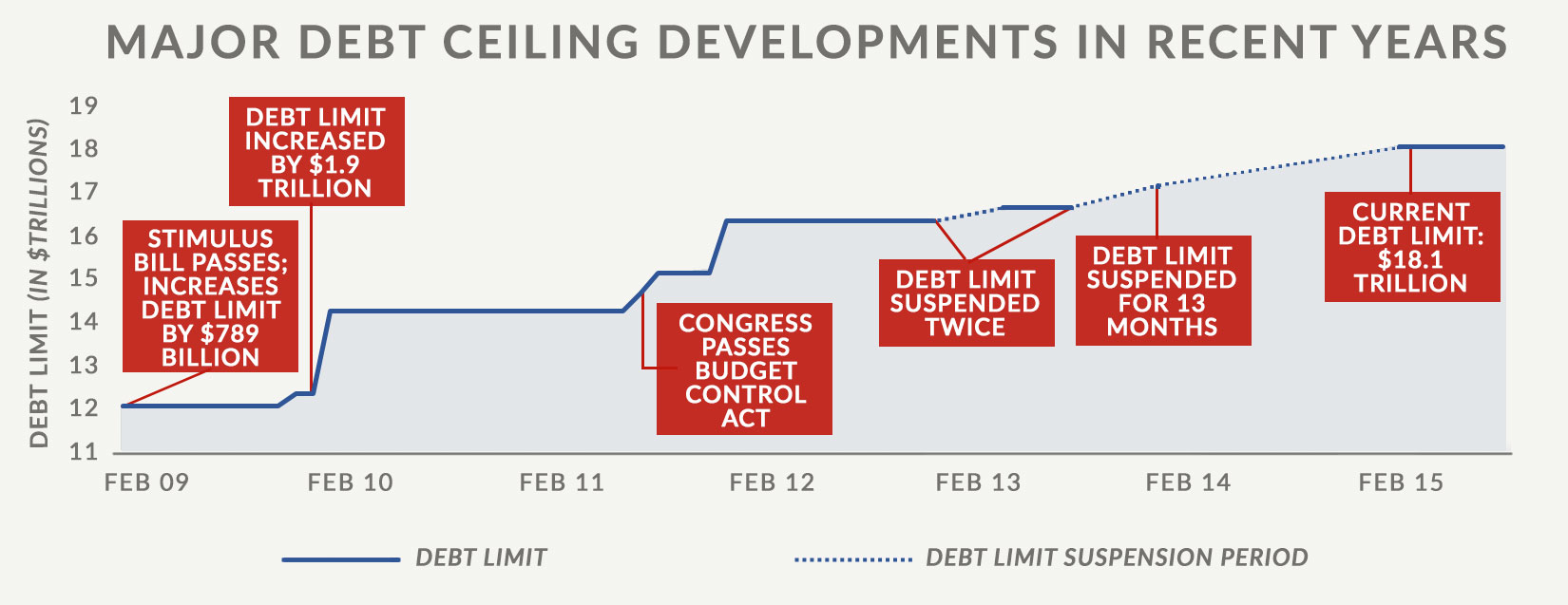Expiring Provisions
-
Starting in January, the new Republican Senate finished the remaining business left by the previous Democrat Senate.
-
The Republican Senate then acted on important priorities for the American people like a balanced budget and education reform.
-
The Senate is prepared to tackle the high profile issues that must be resolved during the fall.
The Senate has been working more and better than it did under Democrat control, and more work remains to be done. This includes a long list of things to take care of this fall. From government funding, to highway spending, to the debt limit, the Senate will do the necessary work of governing.

Debt limit. The debt limit went back into effect on March 16 after being suspended for 13 months. Extraordinary measures by the Treasury Department have pushed off the date by which Congress must deal with the issue until mid-November to early December.
Government funding. The president will have to sign a funding bill before October 1 to ensure the federal government continues to stay open. The Appropriations Committee passed all 12 appropriations bills in July – the first time the committee has done this in six years. One point of contention is funding for Planned Parenthood. During a shutdown, Planned Parenthood would continue to get most of its federal funding.
Tax extenders. These temporary tax provisions have already expired and can be addressed at any time. Last year, Harry Reid and Ways and Means Chairman Dave Camp were close to an agreement to extend many provisions for two years and make some of them permanent, but President Obama threatened a veto. As Finance Committee Chairman Hatch noted, this is the “first time in 20 years that a new Congress began with the tax extenders already expired.”
Perkins Loan program. The Federal Perkins Loan program authorizes federal funds to institutions of higher education to assist them in making low-interest loans to students. Authorization of appropriations expires on September 30.
Internet tax. On September 30, the Internet tax moratorium, which prevents states from taxing internet access, expires. It was extended for one year in the Consolidated and Further Continuing Appropriations Act of 2015.
Transportation. The Federal Aviation Administration faces a September 30 reauthorization deadline. Congress also will need to reauthorize the Highway Trust Fund and surface transportation programs by October 29 to pay for infrastructure projects around the country.
Child nutrition. The Healthy, Hunger-Free Kids Act of 2010, which set new nutrition standards for school meals and expanded student access to subsidized breakfast and lunch, expires on September 30. According to a National Review article, Congress will consider reauthorization “amid criticisms about unappetizing meals, wasted food, and financial strain on school districts.”
Land and Water Conservation Fund. The Land and Water Conservation Fund provides funding for federal land acquisition and to help states in planning and developing recreation areas. The fund accrues $900 million annually from the federal motorboat fuel tax, surplus property sales, and oil and gas leases on the Outer Continental Shelf. Its authorization expires on September 30.
Pipeline safety. The Pipeline Safety, Regulatory Certainty, and Job Creation Act of 2011, which established the federal pipeline safety program, expires on September 30.
Defense authorization. House and Senate bills are in conference committee that would set policies and program priorities for the nation’s defense. Congress has passed this bill for the past 53 years.
Health care. The James Zadroga 9/11 Health and Compensation Act funds health services for responders and other people with health conditions related to the attacks. Authority for the act sunsets on September 30, though unexpended funds may be carried into fiscal year 2016.
Next Article Previous Article
